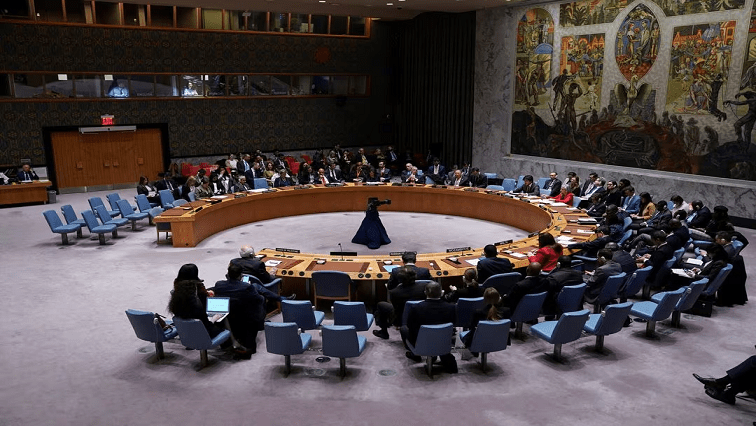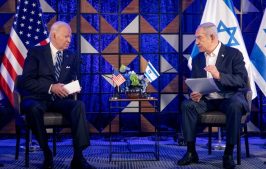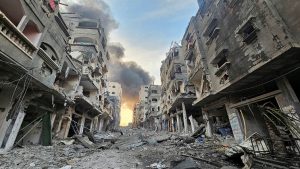Russia and China have vetoed a US drafted Security Council resolution that “determined the imperative of an immediate and sustained ceasefire to protect civilians on all sides of the conflict” in Gaza.
The draft further determined that towards that end, it supported ongoing international diplomatic efforts to secure such a ceasefire in connection with the release of all remaining hostages, part of ongoing diplomatic efforts in the region. The Council again failed to reach consensus with three members voting no, including the only Arab country in the Council.
Eleven in favour, three against including the vetoes of the two permanent members and Algeria, while Guyana abstained, bringing weeks of negotiations to nought. The US expressed its disappointment while attacking Russia and China.
“Russia and China refuses to condemn Hamas from burning people alive for gunning down innocent civilians at a concert for raping women and girls, for taking hundreds of people hostage. This was the deadliest single attack on Jews since the Holocaust and a permanent member of this council can’t even condemn it. I’m sorry. It’s really outrageous. And it’s below the dignity of this body. The second reason behind this veto is not just cynical, it’s also petty. Russia and China simply did not want to vote for a resolution that was penned by the United States because it would rather see us fail than to see this council succeed even after inclusive consultations over weeks and weeks, even after negotiations and edits, produced a draft that received overwhelming council support,” says Linda Thomas-Greenfield, US Ambassador to UN
But Russia argued the US draft simply did not go far enough in demanding an immediate and unconditional ceasefire.
“The UN Security Council has for a half year, six months, been unable to adopt a document with a demand for a ceasefire in Gaza. All of the attempts a time and again came up against the resistance of the United States, who four times in cold blood, cast a veto in this chamber. In this time, we have heard from US colleagues repeatedly their justifications, either they were saying that the achievement of a ceasefire is premature in so far as there is a need to give space for so-called counterterrorism efforts of Israel, or they demanded for the Security Council not to stand in the way of effective diplomacy of Washington on the ground. That is a quote. Or they called for us to wait for the onset of Ramadan when apparently an agreement would definitely be reached for an end to the violence. And now six months have elapsed. Gaza has virtually been wiped from the earth and now the US representative, without blinking, has been asserting that Washington has finally begun to recognize the need for a ceasefire,” says Vasily Nebenzia, Russian Ambassador to UN.
China also explained its veto.
“Over the past month, the draft has undergone several iterations and contains elements that respond to the concerns of the international community. But it has always evaded and dodged the most central issue that of a ceasefire. The final text remains ambiguous and does not call for an immediate ceasefire, nor does it even provide an answer to the question of realizing a ceasefire in a short term. This is a clear deviation from the consensus of the council members and fell far short of the expectations of the international community,” says Zhang Jun, Chinese Ambassador to UN.
Representing the Arab Group, Algeria said the draft simply fell short of exceptions given the carnage unfolding in Gaza that has resulted in over 100 000 casualties including over 32 000 dead mainly women and children.
“The text presented today does not convey a clear message of peace. It tacitly allows for continuing civilian casualties and lack clear safeguards to prevent further escalation. It is a licit policy to continuing killing the Palestinian civilians,” says Amar Bendjama, Algerian Ambassador to UN.
The Council has a separate draft before it that it could consider within hours or days. The draft from seven non-permanent members of the Council including Mozambique, Algeria, Guyana and Switzerland demands an immediate ceasefire for the month of Ramadan which started on March 10, leading to a permanent sustainable ceasefire.
It also demands the immediate and unconditional release of all hostages and emphasizes the urgent need to expand the flow of humanitarianism assistance but as history teaches us, when that draft is put to a vote the veto might simply change hands.






